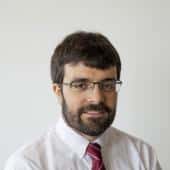Engineering Useful Quantum Computers: From NISQ to Error Correction
Over the last twenty years, quantum computers have transformed from niche physics experiments to large-scale systems that can precisely control quantum states to process information. The road to quantum systems that are truly useful is still uncertain, but recent advances have allowed us to begin understanding the engineering that will be needed to build quantum computers that can demonstrate a true quantum advantage over their classical counterparts. In this talk, I will discuss our recent progress in estimating the classical and quantum resources needed to build such a system using superconducting qubits. Using Hamitlonian simulation and differential equation solvers as benchmark problems for error-corrected quantum computers, I will discuss the toolchain we are developing to go from problem specification to prototype system design, including quantum compiler and error-correcting code development, and control hardware and qubit design. I will also discuss our recent advances in quantum reservoir computing, a new, machine-learning inspired paradigm, that enables a more efficient use of today’s noisy intermediate-scale quantum (NISQ) resources.

Dr. Guilhem Ribeill
Scientist, Raytheon on January 27, 2023 at 10:15 AM in EB3 2207
Guilhem Ribeill is a scientist at Raytheon BBN Technologies where he leads the quantum computing line of business in the Quantum Engineering and Computing group. With over ten years of experience in the design, fabrication and testing of classical and superconducting circuits he is involved in a variety of efforts to benchmark and improve the performance of quantum information processing systems. He earned his doctoral degree from the McDermott group at the University of Wisconsin-Madison, where his graduate research focused on novel qubit readout schemes including the first practical microwave single photon detector.
